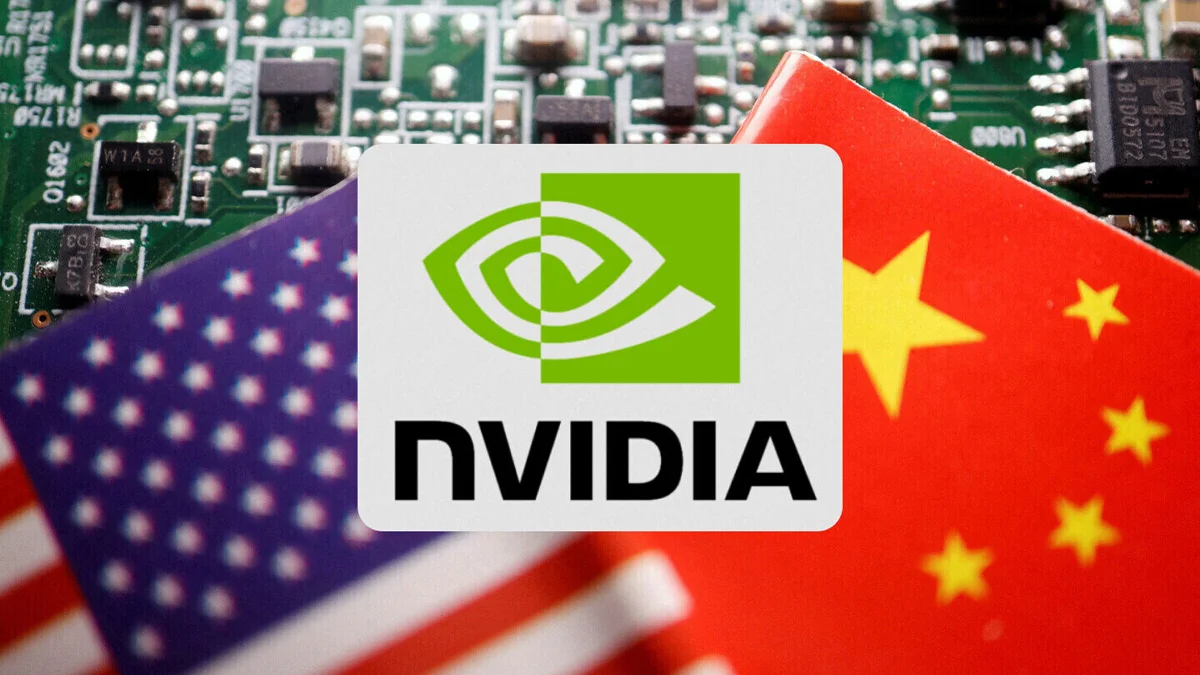Necessary Always Active
Necessary cookies are required to enable the basic features of this site, such as providing secure log-in or adjusting your consent preferences. These cookies do not store any personally identifiable data.
|
||||||
|
||||||
|
||||||
|

AI chip manufacturer Nvidia will face a $5.5 billion charge in its 2026 quarter one results, Reuters reported. The tech giant said this after President Donald Trump capped exports of its H20 AI chips to China. China has been one of Nvidia’s key markets for its popular semiconductors. H20 is Nvidia’s most advanced chip available for export to China. It’s critical to the company’s efforts of remaining engaged in the booming Chinese AI industry.
The Nvidia H20 chip faced US restrictions at a time when the US-China has escalated significantly in recent weeks. The US government says the measures controlling AI chip exports and tariffs are critical for national security.
On Tuesday, a spokesperson from the US Department of Commerce said that the government will issue new licensing requirements on exportation of AI chips including the H20 produced by Nvidia and MI308 manufactured by AMD.
“The Commerce Department is committed to acting on the President’s directive to safeguard our national and economic security,” The Spokesman said.
In its filing, Nvidia said the $5.5 billion charge is related to existing purchase commitments for H20 products, inventories, and other services. The US government is keen on staying ahead in the AI race. Nvidia AI chips have been a major target for export controls as the government seeks to ensure that most advanced chips are not sold to China.
Once the government started implementing the chip export controls, Nvidia started developing products that would meet US limits. Nvidia shares dropped 6% after export control. AMD stocks also dipped 7% in after-hour trading.
Starting February this year, Chinese tech giants started ramping up H20 chips due to rising demand for low-cost AI models from AI startup DeepSeek. Some of the companies that increased orders included TikTok, Tencent, and Alibaba.
According to Nvidia, H20 export licenses introduced by the US government are designed to address the risk that the Asian country may use them to build a supercomputer. However, the company does not think the restrictions would improve national security.
“While cloaked in the guise of an ‘anti-China’ measure, these rules would do nothing to enhance US security,” Nvidia VP of Government Affairs Ned Finkle said in the final days of the Biden administration.
The computing capabilities of H20 AI chips is lower compared to other Nvidia semiconductors like the H100/H200 chip. However, the H20’s ability to connect to other computing chips and memory chips remains high. The connectivity and memory characteristics make the chips useful in development of supercomputers in China.
This is not the first time the US is restricting the sale of chips for use in Chinese supercomputers. The restrictions have been in place since 2022. Analysts in the industry support the restrictions, arguing that Chinese tech companies are already developing their own chips and systems.
“At least one of the buyers, Tencent, has already installed H20s in a facility used to train a large model, very likely in breach of existing controls restricting the usage of chips in supercomputers exceeding certain thresholds. DeepSeek’s supercomputer used to train their V3 model is also likely in breach of the same restrictions,” US Non-partisan think tank Institute for Progress wrote.
Nvidia says that the US government communicated its decision on licensing exportation of H20 chips to China on April 9. It’s still unclear how many licenses the government will be issuing.
The company got another communication on April 14 saying that the new rules would remain effective indefinitely.
The news came days after Nvidia made public its plan to set up AI servers worth $500 billion across the US in the coming four years. Nvidia said it will be working with partners like TSMC on this project in line with Trump’s move to promote local manufacturing.